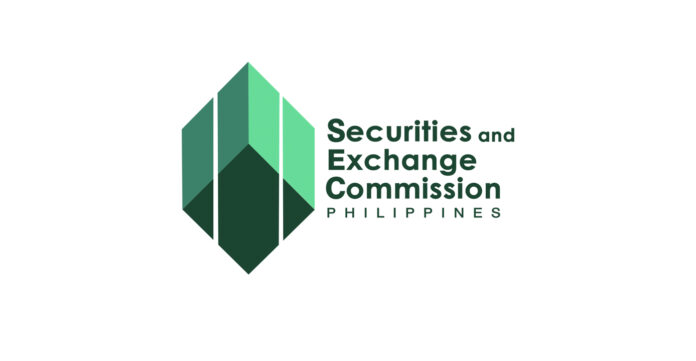The Securities and Exchange Commission has granted the police, revenue and gaming officials access to otherwise confidential data as part of the global fight against money laundering and terrorist financing.
The corporate watchdog signed an agreement with the Bureau of Internal Revenue, the Philippine National Police and the Philippine Amusement and Gaming Corp. allowing these entities timely access to accurate and adequate beneficial ownership information of various business enterprises in line with the recommendations of the Financial Action Task Force.
The Paris-based intergovernmental money laundering and terrorist financing watchdog sets global standards preventing these illicit activities.
The SEC collects beneficial ownership information from regulated entities through SEC Memorandum Circular No. 15, Series of 2019 that amended the general information sheet (GIS) to include beneficial ownership information. In 2020 the SEC issued another memorandum expanding the collection of beneficial ownership data to include foreign corporations.
The agency also issued in 2021 SEC MC No. 1, Series of 2021, providing guidelines in preventing the misuse of corporations for illicit activities through measures designed to promote transparency.
In 2022, the agency also issued SEC MC No. 10, Series of 2022, increasing the penalties and imposing additional non-financial penalties for non-disclosure and false disclosure of beneficial ownership information, among others.
“Information gathered by the Commission through the aforementioned circulars play a vital role in identifying the natural person/s maintaining ultimate effective control of the corporation,” the SEC said.
Beneficial owners are distinguished from legal owners which are defined as natural or juridical persons who, in accordance with the law, own or has the controlling ownership interest over corporations, or has the ability of taking relevant decisions within the corporation and imposing those resolutions.
The SEC agreement also seeks to protect personal and sensitive personal data by incorporating measures provided under Republic Act No. 10173, or the Data Privacy Act of 2012, and its implementing rules and regulations, as well as the pertinent circular issued by the National Privacy Commission Circular on data sharing between government agencies.







